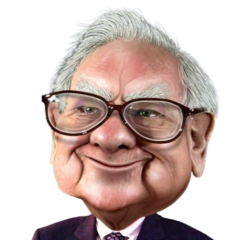You have an idea for a product that you think there is a market for. But you have no money (capital) to turn that idea into a business. So you go looking for that. I mean the capital. You can turn to friends and family who might be able to loan you the money but if your capital requirements are large, you would turn to businesses who are in the business of lending money i.e., the banks. We see them all around us…for now until they go completely digital which they are in the process of going.
And if you can convince the folks at the bank that you have a viable business at hand, the bank will lend you money. And lending means a periodic interest expense that you as a business owner will incur depending upon the terms you signed up for. Plus the money you borrowed to run and grow your business will have to be returned someday.
So your business must earn enough to not only cover all the expenses associated with building and selling your products but also enough to cover the interest expense plus eventually paying the loan off. And then whatever is left over are your profits.
What could you have done instead of borrowing that capital from the bank? You could have convinced the same folks at the bank to give you the money in return for a small piece of your business.
So now the folks who provided you with the much needed capital are partners in your business.
Plus there is no ongoing interest expense because the partners (investors) in your business now are in the same boat as you. And the money doesn’t have to be paid back…in theory. They are now part owners and they want you to succeed because if you succeed, they succeed.
Plus look at it from the bank’s point of view and their risk-reward situation. Their risk if you borrow the money is that your business fails and the bank not only loses the interest income but also the capital they lent.
But if your business turns out to be a startup that becomes the next Apple, they don’t get to participate in all that upside. All they are left with is collecting that measly interest income instead of the gusher of profits that would have flowed to them if they owned a stake in the next Apple. Or Amazon. Or Google.
Because with an equity stake in the business, they own a piece of that business and hence a piece of the profits made by that business.
So owners of businesses inherently make more than lenders because:
- As Naval Ravikant, the founder of AngelList says and I am paraphrasing here – when you are the owner of a business, you own the upside as well as the downside. But when you are a loaner to a business, you do own a guaranteed revenue stream (interest payments) but you also own the downside. So capped upside as a loaner with all the downside.
- Public businesses are run by some of the smartest folks around. We do occasionally hear stories about abuses here and there but in aggregate, these folks are running our businesses the best they could. And no business manager will borrow money at a cost (interest payments) that exceeds profits. So if you own a collection of them, you are bound to out earn a loaner.
The only advantage of being a loaner (lender) is that regardless of what happens to the profits in a business, the lender must get paid their ongoing interest and towards the end of the lending term, the entire loan amount (principal).
So there is a bit of a stability in the value of your investment being a loaner but that’s in the short-term. And that’s assuming the business survives.
As an owner, if business conditions deteriorate, profits decline and the value of that business declines. If that continues for long, the business could permanently shut down and the value of your ownership stake in that business will go to zero.
So stockholders (owners) suffer as well as the bondholders (loaners).
But that is if you own just one business.
The stock market and the bond market allow you to spread your money into hundreds of businesses and not all of these businesses will shutter.
If they did, the stocks will go to zero but so will the bonds. And you’ll have far worse things to worry about than worrying about money if that happens.
So if you are saving money towards goals that are more than a decade out, being an owner must pay out better than being a loaner.
But being an owner (stockholder) over a shorter-term means you are exposed to the full brunt of the volatility in business cycles and volatility as we know cuts both ways.
Thank you for reading.
Cover image credit – Jose Francisco Fernandez Saura, Pexels

